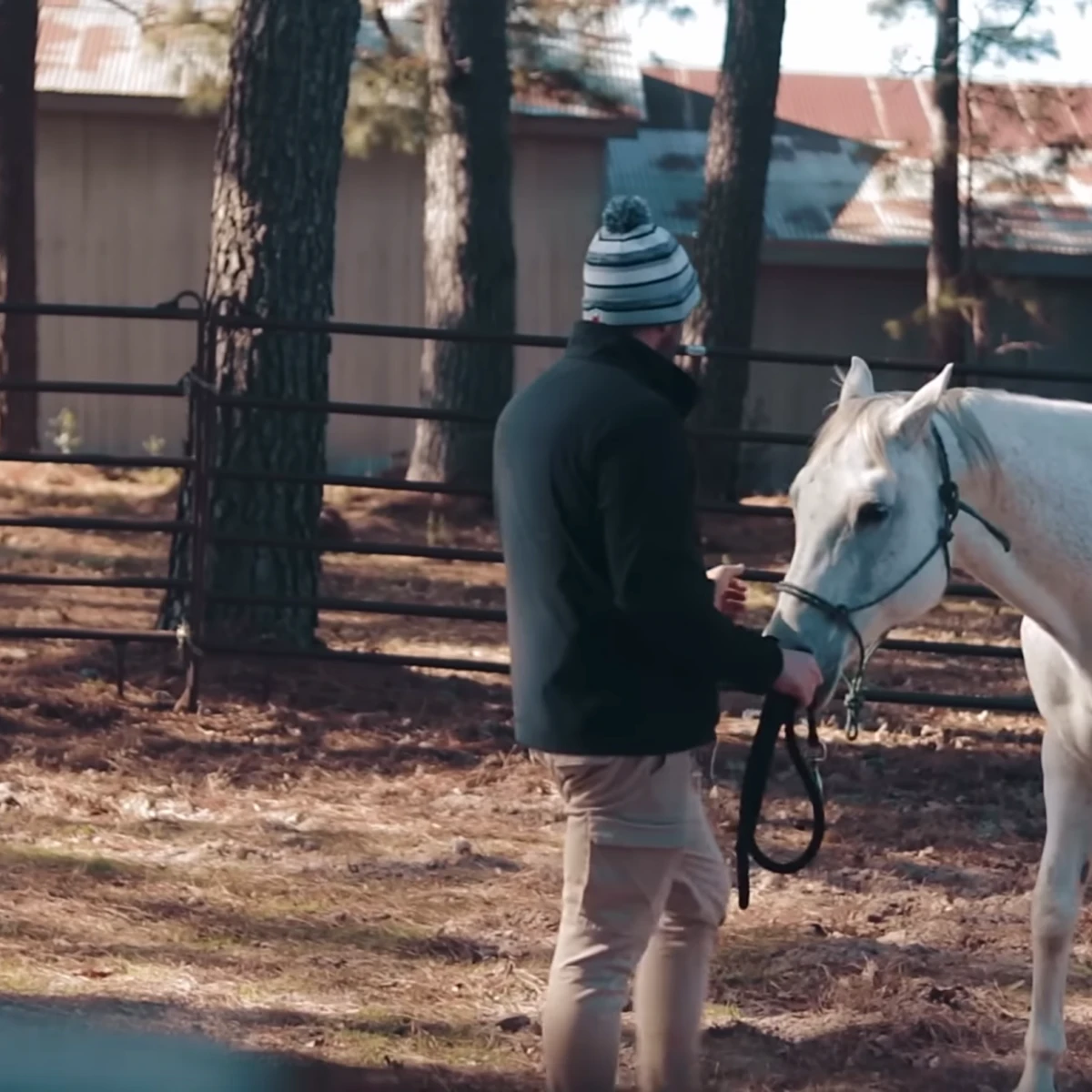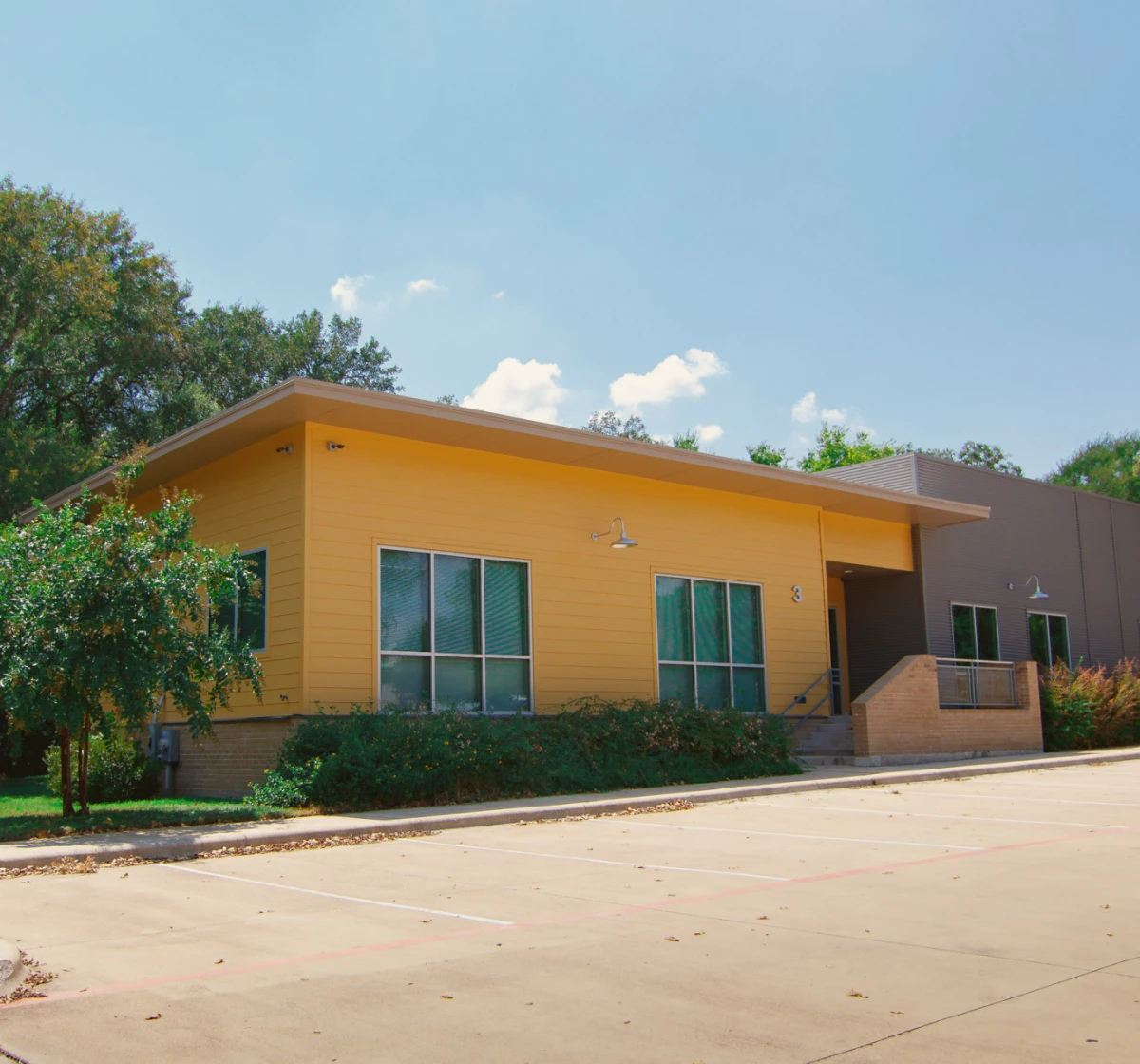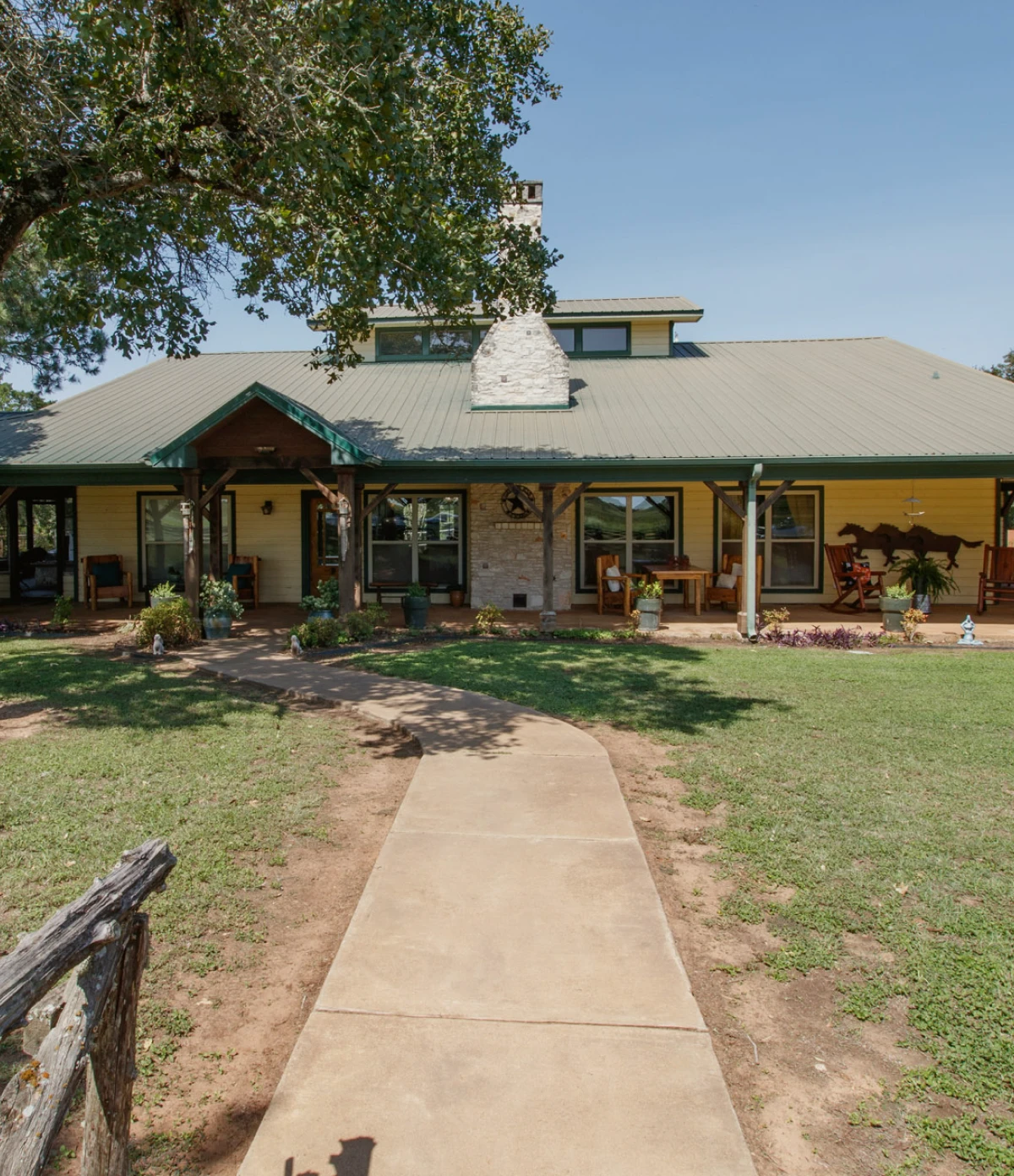We work with insurances. Verify yours now
The Last Resort offers specialized family therapy sessions through our rehab in the Austin area to help you and your loved ones heal from addiction with our comprehensive family therapy programs.
Discover the transformative power of family therapy for addiction recovery at The Last Resort in Austin. Our therapeutic approaches combine clinical expertise with compassionate support to guide families toward healing from drug and alcohol abuse.
Recovery is possible with the right family support – and we can help you start your treatment process today at our Austin-based treatment facility.


Family therapy for addiction recovery is designed for families impacted by substance abuse, offering support and guidance to both the person struggling with addiction and their family members. These family therapy sessions aim to strengthen family bonds, improve communication, and educate about effects of addiction on your family dynamics.[1]
These family therapy sessions can take place in various settings, including residential addiction treatment programs, outpatient clinics, or private practices throughout Austin.
Professionals involved in family therapy for addiction may include licensed counselors, psychologists, psychiatrists, social workers, and addiction specialists. These clinicians collaborate with you to provide comprehensive care, employing evidence-based techniques such as cognitive-behavioral therapy (CBT) to address underlying issues and improve communication within the family unit.[2]
At The Last Resort, our approach to family therapy for addiction recovery emphasizes holistic healing and personalized care. We integrate therapeutic approaches that restore trust, foster resilience, and equip families with problem-solving skills to support ongoing recovery from addiction. Through compassionate guidance and a commitment to long-term wellness, we empower families to navigate the challenges of active addiction together at our Austin facility.


Family therapy in addiction treatment operates on the fundamental principle that addiction affects not just the individual but the entire family unit as well.[3] Family therapy sessions work by providing a structured environment where families can openly discuss their experiences, emotions, and challenges related to addiction.[4] By creating space for family members in therapy sessions, family therapy acknowledges and addresses the interplay between relationship dynamics and addictive behaviors.
Research has shown that involving family members in addiction treatment programs benefits both the person in recovery from addiction and the overall family functioning as well:[5]
The Last Resort offers two unique family programs to meet your holistic addiction treatment needs:
Specifically designed for men in extended care at our facility, Family Focus Day incorporates therapeutic activities (such as equine therapy, family sculpting sessions, and educational workshops) into a transformative experience for the entire family.
Our Online Family Program allows family members to participate in a comprehensive two-day educational workshop from the comfort of home. This program equips families with essential knowledge about addiction, along with working to develop practical skills to actively support their loved ones throughout the recovery journey.

At The Last Resort, our therapists utilize several types of family therapy modalities in our Austin facility, each tailored to address the unique needs of families affected by addiction. Here are some of the different types of family therapy addiction treatment facilities may utilize to facilitate healing:
1. Functional family therapy improves family communication and reduces conflict through structured interventions. This evidence-based method has shown remarkable success in addiction treatment programs by addressing negative interaction patterns and building on family strengths.
2. Systemic family therapy examines how addiction influences and is influenced by the broader family environment. This approach helps family members understand their roles in the recovery process and develop more effective communication strategies.
3. Strategic family therapy focuses on solving specific problems within the family system through targeted interventions. This approach is particularly effective for addressing immediate concerns while building long-term problem-solving skills.
At The Last Resort, each family therapy session is designed to create a space for family members to express themselves, learn about the effects of addiction, and develop strategies to support their loved one’s recovery from addiction in a sustainable way.
For families dealing with co-occurring disorders, The Last Resort offers an integrated therapeutic approach that addresses both addiction and mental health conditions simultaneously.
The benefits of family therapy in addiction treatment extend far beyond the individual in recovery. When incorporated into comprehensive treatment programs, family therapy sessions significantly improve treatment outcomes and reduce the risk of relapse. By addressing family dynamics that may contribute to substance use, therapy helps create a supportive family environment conducive to long-term sobriety.
One of the primary benefits is the development of improved communication skills. Many families affected by addiction struggle with honest communication, which can lead to misunderstandings, resentment, and feelings of isolation. Our family therapy services in Austin and Smithville teach active listening and effective communication techniques that help family members constructively express their needs and concerns.
Family therapy also provides education about the nature of addiction as a disease, helping to reduce blame and stigma while increasing understanding of addiction. This knowledge empowers family members to recognize signs of relapse and respond appropriately. Additionally, therapy sessions focus on identifying and modifying enabling behaviors that might unintentionally support continued substance use.
The healing of broken trust and the restoration of stronger bonds between family members is another crucial benefit. Through guided interactions and conflict resolution exercises, families learn to rebuild relationships damaged by addiction. This process of reconciliation creates a foundation of support that proves invaluable throughout the stages of treatment and beyond.
Family therapy for addiction has shown significant effectiveness in treating substance use disorders by addressing the complex dynamics within family systems.[6] Family members in therapy in addiction treatment not only support the person in recovery but also enhance overall family functioning as well. By improving family communication and promoting healthy boundaries, this approach reduces the risk of relapse and strengthens the support network crucial for sustained recovery from addiction.
Studies highlight that family involvement in therapy leads to better treatment outcomes, including increased abstinence rates and improved overall well-being for both the person in primary treatment and their loved ones.[7] Additionally, therapy helps families identify and modify enabling behaviors and rebuild trust in one another – both of which are essential elements in overcoming the challenges of addiction.[8]

Family therapy for addiction recovery offers you and your loved ones a structured, supportive environment aimed at addressing the complex relationship dynamics of addiction within the family unit. During family therapy sessions in Austin, you can expect to engage in open and honest communication about your collective experiences, emotions, and challenges related to addiction. The session focus is primarily on improving communication, rebuilding trust, and enhancing understanding of one another’s experiences.
You will typically work with licensed therapists and clinicians who specialize in both addiction treatment and family dynamics. These professionals guide discussions and activities designed to help the members of your family identify and change unhealthy patterns of behavior that contribute to and can even prolong addiction. They may also introduce techniques such as role-playing, communication exercises, and conflict resolution strategies to foster healthier interactions.
Individuals and their families might initially feel a range of emotions, including relief at openly addressing long-standing family issues and discomfort or tension as difficult topics are explored. Over time, however, family therapy works to create a safe space for family members where families can heal together, supporting each other through the challenges of addiction recovery and the promise of long-term healing.

Discover transformative healing with family therapy for addiction recovery at The Last Resort, where we redefine recovery through personalized care and unwavering support. Unlike traditional approaches, our family therapy sessions emphasize healing the individual and strengthening familial bonds crucial to long-term success.
From innovative treatment programs like Family Focus Day to our accessible Online Family Program, we empower families with practical tools and insights. With compassionate therapists guiding each session, we create a nurturing space for family members for open family communication and growth, ensuring every family can overcome addiction together and thrive, both during and after treatment.
Family therapy for addiction recovery incorporates various evidence-based therapeutic approaches such as cognitive-behavioral therapy (CBT), family systems therapy, motivational interviewing, and psychoeducation. These techniques are tailored to address the specific needs of each family, aiming to improve family communication, foster healthy boundaries, and promote supportive behaviors that aid in recovery from addiction.[1]
Yes, rebuilding trust is a central focus of family therapy sessions at The Last Resort. Through structured exercises and guided conversations, family members learn to acknowledge past hurts, take responsibility for their actions, and establish new patterns of reliability and honesty. Our therapists facilitate this delicate process by creating a safe environment where authentic healing can occur, helping families move beyond the damage caused by active addiction toward renewed family bonds and mutual respect.[4] This trust-building process is essential for developing the strong support network needed for long-term recovery success.
Family therapy can be highly beneficial for families with histories of trauma or abuse, but requires specialized approaches. At The Last Resort, our therapists are trained in trauma-informed care and can adapt family therapy sessions to address these sensitive issues safely.[3] In some cases, individual therapy may be recommended before or alongside family sessions to ensure all participants feel secure. Our goal is to create healing opportunities without retraumatization, helping families address painful histories while developing healthier relationship dynamics for the future. For families dealing with complex trauma, we offer specialized therapeutic approaches that integrate trauma recovery with addiction treatment.
Family therapy significantly reduces relapse risk by addressing family-level factors that contribute to substance use. Research shows that individuals with supportive, educated families who participate in therapy have substantially higher success rates in maintaining sobriety.[5][7] By learning to recognize signs of relapse, improving family communication, and understanding how to respond effectively to challenging situations, families become an active part of the recovery support system rather than unintentional enablers of problematic behaviors. The skills developed in family therapy create a protective environment that substantially lowers the risk of returning to active addiction.
Our family therapy programs equip families with practical tools and strategies for navigating the transition from treatment back to everyday life.[8] Sessions focus on establishing healthy routines, setting appropriate boundaries, developing conflict resolution skills, and creating realistic expectations for recovery. Families learn how to balance providing support with encouraging independence, and how to address challenges that may arise as their loved one integrates recovery principles into daily living. Through our comprehensive approach to family therapy in addiction treatment, we teach families how to create a supportive home environment while encouraging personal responsibility. Our aftercare support ensures continued guidance as families implement these skills in real-world settings.
[1] Information, N. C. for B., Pike, U. S. N. L. of M. 8600 R., MD, B., & Usa, 20894. (2020). Chapter 3—Family Counseling Approaches. In www.ncbi.nlm.nih.gov. Substance Abuse and Mental Health Services Administration (US). https://www.ncbi.nlm.nih.gov/books/NBK571088/ on June 19, 2024
[2] Varghese, M., Kirpekar, V., & Loganathan, S. (2020). Family interventions: Basic principles and techniques. Indian Journal of Psychiatry, 62(2), 192–200. https://doi.org/10.4103/psychiatry.indianjpsychiatry_770_19 on June 19, 2024
[3] FAMILY THERAPY CAN HELP FOR PEOPLE IN RECOVERY FROM MENTAL ILLNESS OR ADDICTION. (n.d.). https://store.samhsa.gov/sites/default/files/sma13-4784.pdf on June 19, 2024
[4] SAMHSA. (2020). Substance Use Disorder Treatment and Family Therapy UPDATED 2020 TREATMENT IMPROVEMENT PROTOCOL TIP 39. https://store.samhsa.gov/sites/default/files/tip-39-treatment-family-therapy-pep20-02-02-012.pdf on June 19, 2024
[5] Esteban, J., Suárez‐Relinque, C., & Jiménez, T. I. (2022). Effects of family therapy for substance abuse: A systematic review of recent research. Family Process, 62(1). https://doi.org/10.1111/famp.12841 on June 19, 2024
[6] Horigian, V. E., Anderson, A. R., & Szapocznik, J. (2016). Family-Based Treatments for Adolescent Substance Use. Child and Adolescent Psychiatric Clinics of North America, 25(4), 603–628. https://doi.org/10.1016/j.chc.2016.06.001 on June 19, 2024
[7] Hogue, A., Becker, S. J., Wenzel, K., Henderson, C. E., Bobek, M., Levy, S., & Fishman, M. (2021). Family involvement in treatment and recovery for substance use disorders among transition-age youth: Research bedrocks and opportunities. Journal of Substance Abuse Treatment, 129, 108402. https://doi.org/10.1016/j.jsat.2021.108402 on June 19, 2024
[8] Lander, L., Howsare, J., & Byrne, M. (2013). The impact of substance use disorders on families and children: From theory to practice. Social Work in Public Health, 28(3-4), 194–205. https://doi.org/10.1080/19371918.2013.759005 on June 19, 2024
Our admission specialists are ready to talk with you 24/7 about starting the journey. We always treat each caller with the utmost respect, detailing your treatment options and respecting your confidentiality.
Based on your assessment, we’ll work together to create a customized treatment plan that addresses your needs, ensuring you have the support and resources necessary to achieve your goals.
The Last Resort is in-network with most major insurance companies. Fill out the form below to verify your healthcare coverage within the hour.
We’ll welcome you to our campus and start laying the groundwork for a successful, long-term recovery.